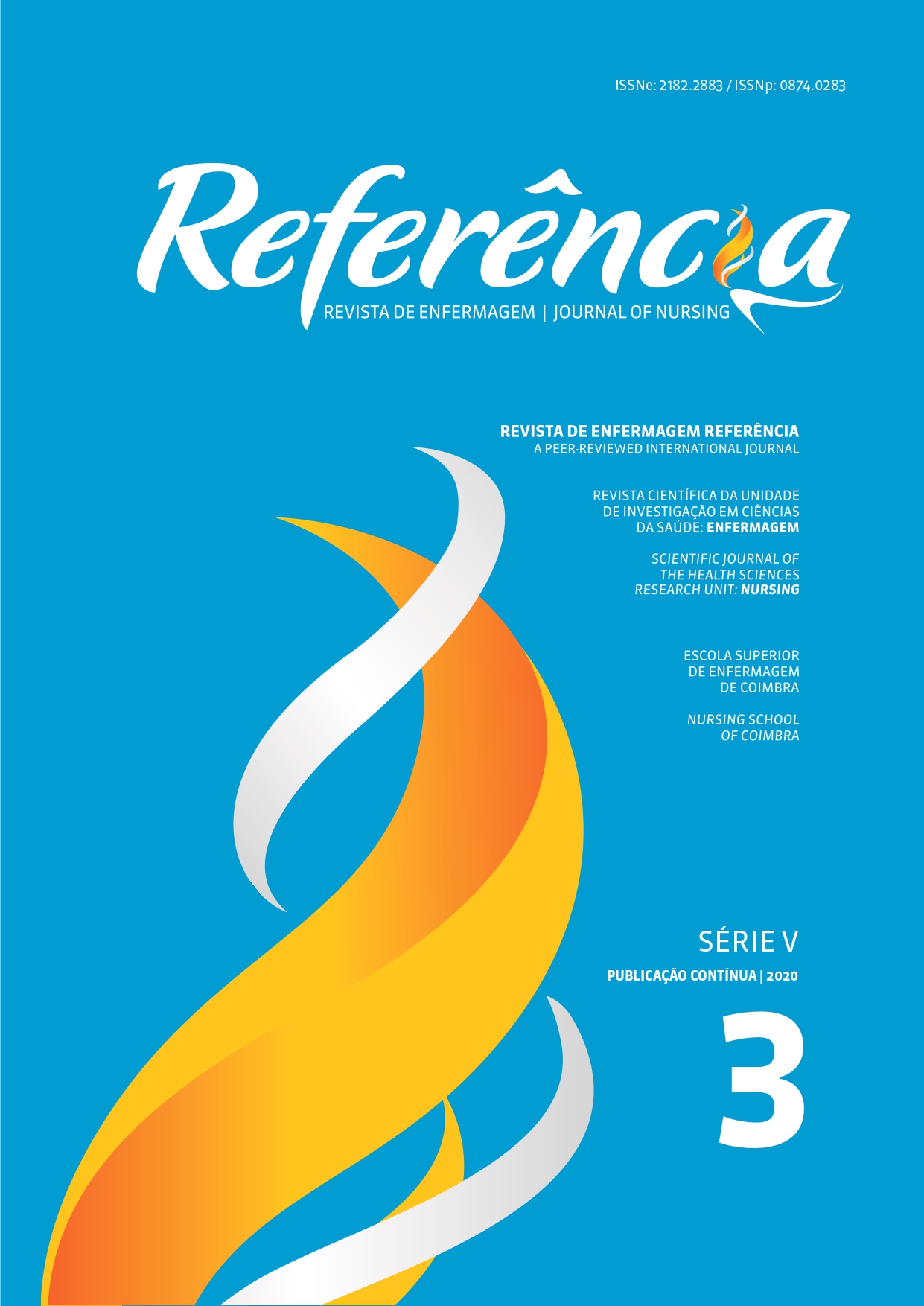Development and validation of the Individual Empowerment Scale in the context of chronic disease
DOI:
https://doi.org/10.12707/RV20025Keywords:
chronic disease, empowerment for health, scalesAbstract
Background: The assessment of empowerment can contribute to obtaining gains in health.
Objectives: To develop and validate a scale for assessing the individual empowerment of chronically ill people.
Methodology: The instrument was developed and applied to a convenience sample of 271 chronically ill people, between 18 and 65 years old, residing in Lisbon. The validation of the reliability of the instrument was carried out to assess the metric properties of the scale.
Results: A 25-item scale was developed with 7 dimensions: Self-perception, Participation in health-related decisions, Mastery, Determination, Identity, Autonomy and power, and Relationship with health professionals. The factor analysis (principal components analysis with Varimax rotation) revealed that the 25 items were organized into seven factors with a total variance explained of 65.28% and a total Cronbach’s alpha of 0.803.
Conclusion: The creation of a valid and reliable measure of the empowerment of chronically ill people may assist health professionals in exploring the impact of this outcome on treatment regimen self-management.
Downloads
References
Almeida, C., & Ribeiro, P. (2010). Empowerment em adultos na comunidade: Estudo preliminar de adaptação de uma escala para a população portuguesa. Porto, Portugal: Núcleo de Investigação em Saúde e Qualidade de Vida, Escola Superior de Enfermagem do Porto. Recuperado de https://sigarra.up.pt/fpceup/pt/pub_geral.pub_view?pi_pub_base_id=85143
Anderson, R. M., Funnell, M. M., Fitzgerald, J. T., & Marrero, D. G. (2000). The diabetes empowerment scale: A measure of psychosocial self-efficacy. Diabetes Care, 23(6), 739-743. doi:10.2337/diacare.23.6.739
Barr, P. J., Scholl, I., Bravo, P., Faber, M. J., Elwyn, G., & McAllister, M. (2015). Assessment of patient empowerment: A systematic review of measures. PLoS One, 10(5), e0126553. doi:10.1371/journal.pone.0126553
Bastos, F. (2015). A teoria explicativa sobre a gestão da doença crónica e regime terapêutico: A transição para a doença crónica. Porto, Portugal: Novas Edições Académicas.
Bulsara, C., Styles, I., Ward, A. M., & Bulsara, M. (2006). The psychometrics of developing the patient empowerment scale. Journal of Psychosocial Oncology, 24(2), 1-16. doi:10.1300/J077v24n02_01
Cerezo, P. G., Juvé-Udina, M. E., & Delgado-Hito, P. (2016). Concepts and measures of patient empowerment: A comprehensive review. Revista da Escola de Enfermagem USP, 50(4), 667-674. doi:10.1590/S0080-623420160000500018
Fumagalli, L., Radaelli, G., Emanuele, L., Bertele, P., & Masella, C. (2015). Patient empowerment and its neighbours: Clarifying the boundaries and their mutual relationships. Health Policy, 119(3), 384-394. doi:10.1016/j.healthpol.2014.10.017
Faulkner, M. (2001). A measure of patient empowerment in hospital environments catering for older people. Journal of Advanced Nursing, 34(5), 676-686. doi:10.1046/j.1365-2648.2001.01797.x
Herbert, R., Gannon, A., & Rennick, R. (2009). A systematic review of questionnaires measuring health-related empowerment. Research and Theory for Nursing Practice, 23(2), 107-132. doi:10.1891/1541-6577.23.2.107
Köhler, K., Tingström, P., Jaarsma, T., & Nilsson, S. (2018). Patient empowerment and general self-efficacy in patients with coronary heart disease: A cross-sectional study. BMC Family Practice, 19(1), 76. doi:10.1186/s12875-018-0749-y
Luz, E., Bastos, F., Vieira, M., & Mesquita, E. (2017). Contributos para a tradução e validação da escala Adapted Illness Intrusiveness Ratings no contexto português. Revista de Enfermagem Referência, 4(15), 43-54. doi:10.12707/RIV17045
Marôco, J. (2014). Análise de equações estruturais: Fundamentos teóricos, software & aplicações. Lisboa, Portugal: Sílabo.
McAllister, M., Dunn, G., Payne, K., Davies, L., & Todd, C. (2012). Patient empowerment: The need to consider it as a measurable patient-reported outcome for chronic conditions. BMC Health Services Research,12(1), 157. doi:10.1186/1472-6963-12-157
Mota, L., Bastos, F., & Brito, A. (2017). A pessoa submetida a transplante de fígado: Caracterização do estilo de gestão do regime terapêutico. Revista de Enfermagem Referência, 4(13), 19-28. doi:10.12707/RIV17006
Rogers, E. S., Chamberlin, J., Ellison, M. L., & Crean, T. (1997). A consumer-constructed scale to measure empowerment among users of mental health services. Psychiatric Services, 48(8), 1042-1047. doi:10.1176/ps.48.8.1042
Santis, M., Hervas, M., Weinman, A., & Bottarelli, V. (2018). Patient empowerment: Policy brief. Recuperado de http://www.rd-action.eu/wp-content/uploads/2018/09/PATIENT-EMPOWERMENT.pdf
Small, N., Bower, P., Chew-Graham, C., Whalley, D., & Protheroe, J. (2013). Patient empowerment in long-term conditions: Development and preliminary testing of a new measure. BMC Health Services Research, 13(1), 263. doi:10.1186/1472-6963-13-263
Wang, R., Hsu, H., Lee, Y., Shin, S., Lin, K. D., & An, L. W. (2016). Patient empowerment interacts with health literacy to associate with subsequent self-management behaviors in patients with type 2 diabetes: A prospective study in Taiwan. Patient Education and Counseling, 99(10), 1026-1031. doi: 10.1016/j.pec.2016.04.00
World Health Organization Regional Office for Europe. (2012). Health 2020: Policy framework and strategy. Recuperado de http://www.euro.who.int/__data/assets/pdf_file/0020/170093/RC62wd08-Eng.pdf






















